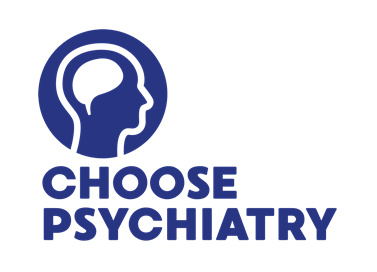Music therapy
22 October, 2019
Dr Molefi Dinga Mathe – aka Dj Levi Love – connects the dots between his role as a psychiatrist working in Adolescent Psychiatric Intensive Care, and the transformative power of music.
 I work as an associate specialist on an Adolescent Psychiatric Intensive Care Unit. I have been in this post for just
under two years now. I have worked in all the other CAMHS settings before this – Community CAMHS, CAMHS acute, CAMHS low secure, CAMHS eating disorders and early intervention service in psychosis, which included CAMHS patients. CAMHS, CAMHS
and CAMHS.
I work as an associate specialist on an Adolescent Psychiatric Intensive Care Unit. I have been in this post for just
under two years now. I have worked in all the other CAMHS settings before this – Community CAMHS, CAMHS acute, CAMHS low secure, CAMHS eating disorders and early intervention service in psychosis, which included CAMHS patients. CAMHS, CAMHS
and CAMHS.
Life in the ICU
The Psychiatric Intensive Care Unit is a completely different beast, however. Our unit hosts ten beds. Each morning when I walk in to PICU, I am greeted by all patients running towards the air lock, shouting my name. Molefi! Molefi!! I have to greet each patient individually before I can enter the ward, like a rite of passage or some form of new-age password.
The premise of a PICU is usually to contain risks of patients who cannot be managed in acute settings or have been presented as a risk from the point of contact in the community. I have noticed over the months that some patients have settled by just being confronted with this environment. Equally so, some patients can become even more irate and a risk on arrival.
I have also noticed recently that there seems to be an increasing number of patients who present psychosis and also have an ASD diagnosis. It really is an interesting body of work to decipher – what is psychosis and what is ASD. This is the part of my job that literally give me goosebumps.
On the other end of the difficulty spectrum is emerging personality disorders. There are several challenges in managing these patients effectively, and the real thorn is getting the care pathway correct. This depends on external stake holders like social services, community teams, acute wards and probation services in some instances. Just like with every job, there can be stupendous frustrations.
Escaping through sound
This is where my music comes in.
While I was doing CAMHS early intervention services, I set up a band with a few patients and this was revelatory for me. The power of music and the power of collaboration.
I rely on music so much it is unreal. I remember having one of those difficult days where a diagnostic formulation was causing headaches just a few months ago. I remember thinking that the presence of trauma in that formulation wasn’t accounted for. When I arrived home, I went into my music studio and started producing a track called ‘Trauma’. I used synthesizers and drums to present the dichotomy. It was so therapeutic and so revelatory that my record label is releasing that piece of work (in September 2019 on all digital platforms...) .
I am privileged to be able to play clubs as a DJ in Manchester – every third Friday of the month I have an 8-hour vinyl only set at Soup Kitchen. This is often proves the proverbial light at the end of the dark tunnel that my job as a psychiatrist can sometimes present. After that set, I feel like I have been on holiday, and so my return to the ward on a Monday morning is always nonsensically jovial.
Hitting the decks
The patients who present psychosis and have an ASD diagnosis tend to be thrown into the pile of ‘conduct disorder’ and there is a general frustration in psychiatry with the management of these. I have now, for the first time, drawn a direct link between my music and my job as a psychiatrist. Together with other musically-minded psychiatrists, I have just written a paper on how young people with conduct disorder can be helped by teaching them modern formats of music like DJing and production.
Of course, I will be heading the musical aspect of this endeavor. As awkward as it may sound, I would not be this musical without psychiatry. Together the two disciplines form my essence.


